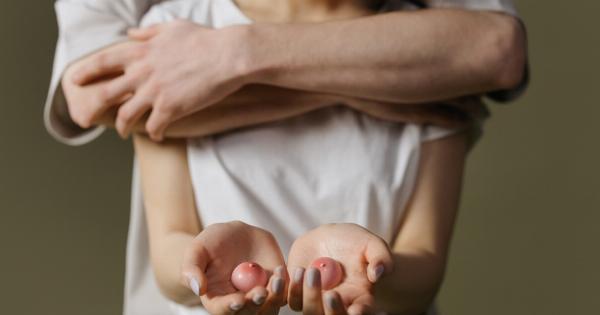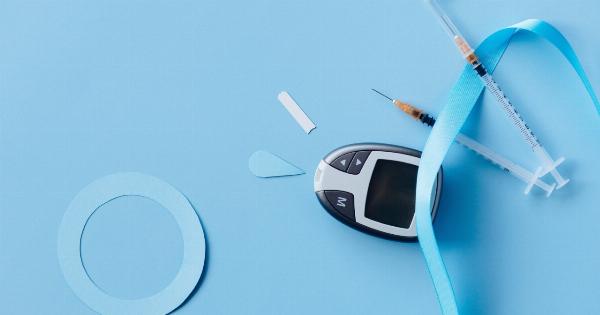Nail-biting is a common habit that many individuals struggle with. It can be a difficult cycle to break, but with the right strategies and guidance, it is possible to overcome this behavior.
In this comprehensive guide, we will explore the causes of nail-biting, its impact on our physical and mental health, and provide effective techniques to help you stop this habit for good.
Understanding Nail-Biting
Nail-biting, also known as onychophagia, is a compulsive behavior where individuals chew on their nails. It is a common habit that often starts during childhood and can continue into adulthood.
Nail-biting is considered a form of body-focused repetitive behavior (BFRB), which also includes hair-pulling and skin-picking.
The Causes of Nail-Biting
Nail-biting can be triggered by various factors, including:.
- Stress and Anxiety: Nail-biting often occurs as a response to stress, anxiety, or boredom. It may provide temporary relief or act as a distraction.
- Imitation: Children may imitate nail-biting behavior if they observe it in their parents or peers.
- Perfectionism: Some individuals may engage in nail-biting due to perfectionist tendencies, where any imperfection on the nails becomes a trigger.
- Heredity: Research suggests that nail-biting can have a genetic component, making certain individuals more prone to developing this habit.
The Impact of Nail-Biting
Nail-biting can have negative consequences on both our physical and mental well-being:.
Physical Impact
Nail-biting can lead to:.
- Damaged and weakened nails
- Increased risk of infection around the nail bed
- Skin damage and soreness around the fingertips
- Misalignment of teeth and jaw due to constant pressure on them
Mental and Emotional Impact
Nail-biting can also have negative effects on our mental and emotional health:.
- Increased levels of stress and anxiety
- Feelings of embarrassment or shame
- Lowered self-esteem and confidence
- Difficulty focusing on tasks
Breaking the Nail-Biting Cycle
1. Self-Awareness
The first step in overcoming nail-biting is to develop self-awareness. Start by identifying the situations or triggers that lead to your nail-biting behavior. Keep a journal to track when and why you feel the urge to bite your nails.
2. Substitute the Habit
Find a healthy substitute for nail-biting to redirect your behavior. For example, keeping a stress ball or fidget toy can provide an alternative outlet for nervous energy.
3. Practice Relaxation Techniques
Since stress and anxiety are common triggers for nail-biting, learning relaxation techniques can help break the cycle.
Deep breathing exercises, mindfulness meditation, and progressive muscle relaxation can all aid in reducing stress levels and promoting a sense of calm.
4. Keep Your Nails Trimmed and Maintained
Shorter nails are less tempting to bite. Regularly trim and maintain your nails to reduce the urge to chew on them. Treat yourself to a manicure or keep them painted in a color that you find visually appealing.
5. Use a Bitter-Tasting Nail Polish
Consider applying a bitter-tasting nail polish that is specifically designed to deter nail-biting. The unpleasant taste can serve as a deterrent each time you bring your fingers to your mouth.
6. Identify and Address Underlying Issues
If nail-biting is linked to underlying issues such as stress, anxiety, or perfectionism, it is important to address and manage these factors. Seek support from a therapist or counselor who can help you work through these challenges.
7. Seek Support from Friends and Family
Let your friends and family know about your goal to stop nail-biting. Their support and encouragement can help keep you accountable and motivated throughout your journey.
8. Utilize Habit-Reversal Techniques
Habit-reversal techniques involve replacing nail-biting with a different, incompatible behavior. For example, clenching your fists or keeping your hands in your pockets whenever you feel the urge to bite your nails.
9. Maintain Good Oral Hygiene
Practicing good oral hygiene can also help discourage nail-biting. Regularly brushing, flossing, and using mouthwash will make your nails taste unpleasant if you bring them to your mouth.
10. Celebrate Milestones and Rewards
Set achievable goals and reward yourself when you successfully avoid nail-biting. Celebrating milestones can help reinforce positive behavior and motivate you to continue on your journey to breaking the nail-biting cycle.
Conclusion
Nail-biting is a habit that can be challenging to break, but with persistence, self-awareness, and the utilization of effective strategies, it is possible to overcome this behavior.
By understanding the causes of nail-biting, recognizing its impact, and implementing the techniques outlined in this guide, you can take the necessary steps towards breaking free from the nail-biting cycle and improving your overall well-being.




























